Perseverance, dedication to service reflect Blackburn’s military past, character
Coppell High School assistant boys soccer coach David Blackburn was selected to train to be a naval intelligence officer in early 2014. Blackburn has been immersed in the military lifestyle since he was a child, his father being a former Navy officer. Photo by Amanda Hair.
For almost a year, the pain that permeates assistant soccer coach David Blackburn’s shoulder wouldn’t leave. It lingered as a reminder of his past, of his military background, of his time in Naval Officer Candidate School (OCS). It serves as a remembrance of opportunities. It is a portrayal of doors, both opened and closed in Blackburn’s life and the lives of others around him.
But now, as he in is a new chapter of his life, the pain has ceased. Yet, the memories live on.
Since birth, Blackburn has been immersed in a military lifestyle. He was born to career Navy officer, David Ray Blackburn and Greek national Mina Blackburn after the two met and were married while David Ray was stationed in Greece.
The couple moved their family to the United States when David was 3. Growing up with his father as a naval officer, he was always intrinsically drawn towards the military life.
“My father has a traditional military attitude and demeanor,” Blackburn said. “He’s extremely disciplined, he lives his life by a very strict code. That’s something that I was drawn to and wanted to emulate.
“Unquestionably, [he has] been the principal influence in my life. He’s taught me a lot, and growing up, I always thought if I can be like my father, that’s going to be a successful life for me.”
Since his youth, Blackburn had thought about a possible career in the military. After graduating from college, he spent some time working in the defense industry. Then, this dream began to become a realization.
Blackburn returned back to school at University of Texas at Arlington, where he applied for and was admitted to the political science master’s degree program. This is when his original military dream began to become a reality.
“During that time in 2013 while I was finishing up my master’s degree, I got in touch with the Navy officer recruiter and I began the application process,” Blackburn said.
The application process is not an easy one. After spending nine months filling out page upon page of paperwork and completing the entire process, the officer with whom he was in contact submitted his packet to the Navy Intelligence Board in April 2014.
“When it was submitted, the Navy officer recruiter told me the selection rate for Navy intelligence is about two to three percent,” Blackburn said. “It’s the most difficult program to be selected for. Going in, I thought I had a really strong packet. My test scores were high, and my grades were good. But given that percentage, I was obviously cautiously optimistic.”
After a couple months of patiently waiting, he finally received a call. He was one of about three selected to train to be a naval intelligence officer out of approximately 1,000 applicants. After hearing back, Blackburn felt a mix of emotions wash over him.
“Most of all, the overwhelming feeling was that I felt grateful,” Blackburn said. “It’s a tremendous honor to be selected to be a naval intelligence officer, so I was looking forward to it.”
After the thrill of being admitted into the program, Blackburn had to “hurry up and wait” to be sent off to Officer Candidate School. After six months of waiting and preparation, he was finally headed to training to begin the next chapter of his career. When he arrived, however, it was a culture shock.
“It was the most difficult thing I’ve ever done,” Blackburn said. “I prepared myself physically in terms of my knowledge, because it was a tremendous amount of memorization. I thought I had prepared myself mentally. I certainly tried to the best of my ability, but OCS is incredibly challenging for everyone, and it’s meant to be.”
For nearly a month and a half, Blackburn participated in the grueling OCS training. He was forced to learn to adapt quickly and often learn entirely on the fly.
During a training exercise, he suffered an injury to his shoulder. After running some tests, the doctors found out he had contracted a severe injury, one that would require surgery to heal. He was removed from his OCS class for the surgery, then months of rehabilitation followed. While in this rehabilitation, he met a lifelong friend in Navy officer ensign Morgan Kouhar, who was receiving a different kind of medical treatment at the time.
“Originally I was trying to fly,” Kouhar said. “But I was disqualified for complications with a heart murmur. I had graduated from the entire course, I didn’t have a job anymore because I was disqualified.”
While recovering, the two bonded over a variety of things, including a passion for soccer. In this friendship, Kouhar truly saw Blackburn’s love for his country and his desire to serve.
“It’s incredible,” Kouhar said. “He was away from his family with a severe injury that is extremely painful to deal with, and all the while he still wants to go in and serve his country. He is extremely dedicated.”
To compound how hard it would have been to be away from his wife, Blackburn’s son was born only a month before he left for OCS. What originally was only scheduled to be a 12-week course ended up taking seven and a half months.
“The reality is, when you’re in the military, your eyes are forced open and you see how much service members give,” Blackburn said. “The fact that I was away for seven months, yeah it’s challenging, but there are people in the Navy and across the armed services that go on multiple deployments for nine or 10 months, so that comes with the job.”
After six months of rehabilitation, Blackburn’s injury was not improving. He and the doctors decided that it would be best for him to return home and try to continue healing. Eventually, however, they came to the consensus it was just not going to work out.
Only midway through training, his goal was not going to be achievable. Blackburn was no longer physically able to be in the Navy. Emotions aside, however, he needed another occupation. And as the old adage goes, as one door closes, another one opens.
“When I found out that I was going to be medically separated from the Navy, I had to find something else to do,” Blackburn said. “I had some experience teaching at UTA, and it’s something I really enjoyed. A friend of mine told me that the assistant coaching job had opened up at Coppell. I knew [Coppell boys soccer coach Chad Rakestraw} from [Denton Ryan] high school, we played soccer together. I got in contact with coach Rakestraw, we spoke over the phone, he told me to apply, and it all happened really, really quickly.”
When Blackburn first showed interest in the job opportunity, Rakestraw had his share of concerns.
“The concern at that point in time was that he was still thinking of trying to stay within the military,” Rakestraw said. “I told him, ‘I need somebody that, for sure, if I give them the opportunity, they’re going to come’. He assured me that he was for sure about it.”
After interviewing for the position, Blackburn was hired on as the assistant coach. In only his first year in the program, the team won the Texas 6A State Championship. Yet, there was still a learning curve with him as the season went on.
“It takes time for anyone to adjust to a program, the playing style, the expectations that I expect my coaches to have upon our program and our teams,” Rakestraw said. “He’s adjusted well, but it’s been an adjustment.”
Yet even with the adjustment, he has made an immediate impression on players and coaches alike.
“He’s a great guy,” senior soccer player Laurence Fairchild said. “He’s a really nice coach. When coach Rakestraw isn’t there, he steps in and he really knows how to do his job well.”
Yet his demeanor is different than what one might expect of an ex-military personnel.
“You would expect somebody from the military to be incredibly hardcore, black and white and really tough on people,” Rakestraw said. “He’s actually not that. He can speak to guys or make decisions without anger or without raising his voice.”
His laid-back, calm personality is one that, at times, can be useful. An alternative to the generally energetic charisma of Rakestraw, Blackburn can sometimes reach the athletes by looking at situations entirely objectively.
“He can take emotion out of it much better than a lot people can, even myself included sometimes,” Rakestraw said. “I let emotions get the best of my coaching or whatever the situation may be. For him, he can step out of it and be objective and stay focused on the information that he needs to give.”
In his second season, it is clear that Blackburn has found a home in Coppell, developing the junior varsity and continuing to help in the improvement of the varsity team. But even so, the question remained: is there any chance he would like to return to the military?
After being asked that question, he paused for five seconds. Ten seconds. Then he looked up with a smile.
“I’m really happy to be here at Coppell High School,” Blackburn said. “It’s worked out extremely well for me. I’m really grateful to be working here. All the staff, everyone here has really welcomed me and helped me transition. I’ve learned a lot from a lot of different people.
“What happened was unfortunate, but I’m really happy where I am today.”
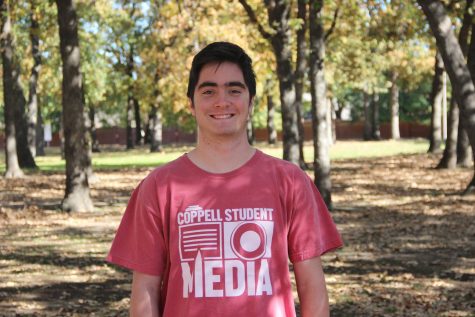
Marcus Krum is a senior at Coppell High School. In his third year on staff, he is the sports executive editor. In his years on staff, he focuses mainly...
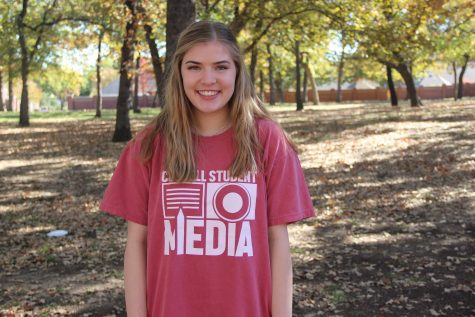
Amanda Hair is a senior at Coppell High School, this being her final year on The Sidekick and her first year as the Sports Photography Editor. She is also...



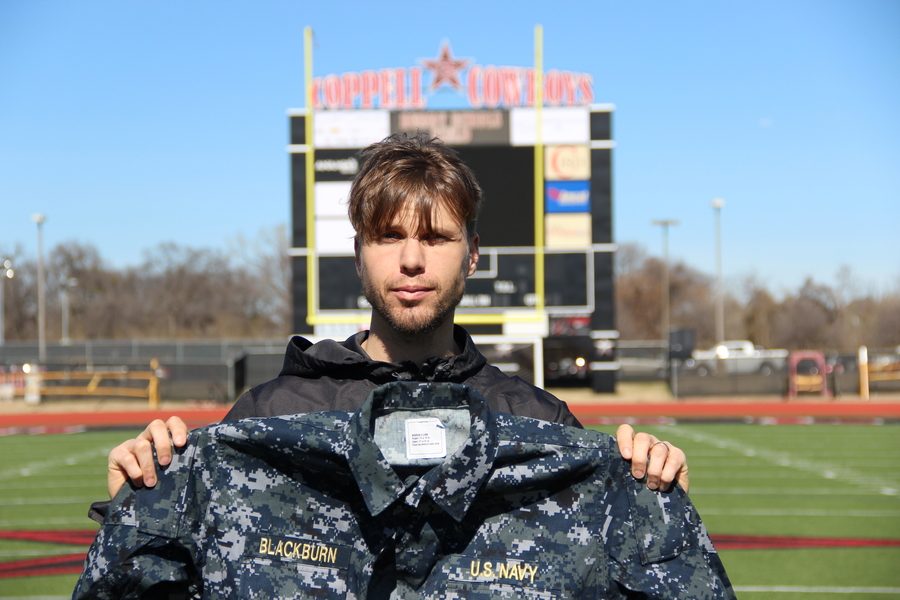
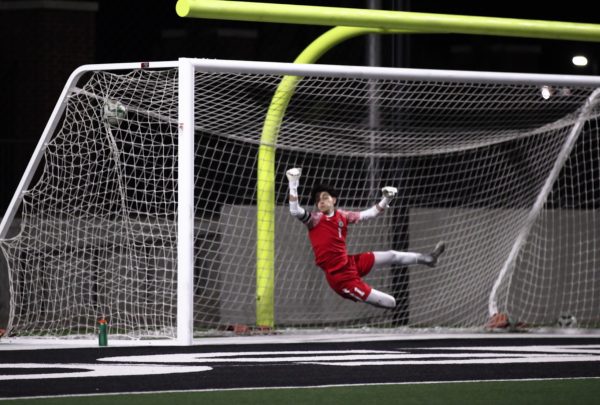
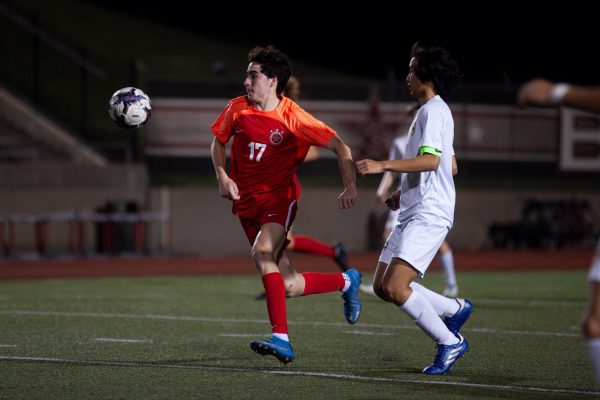
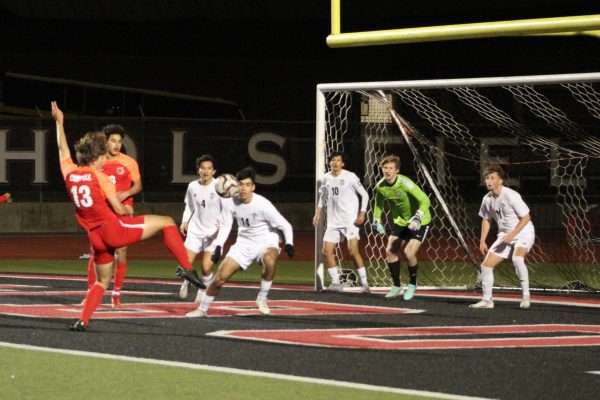
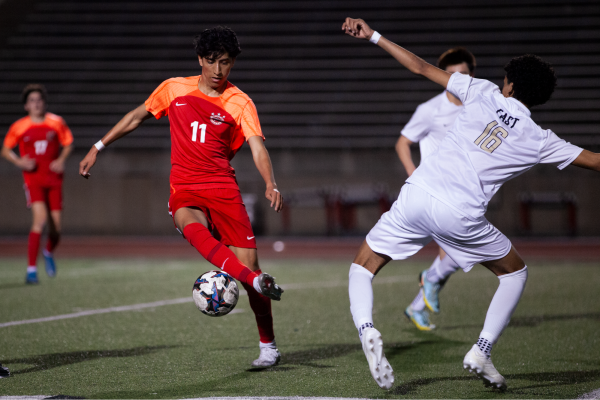
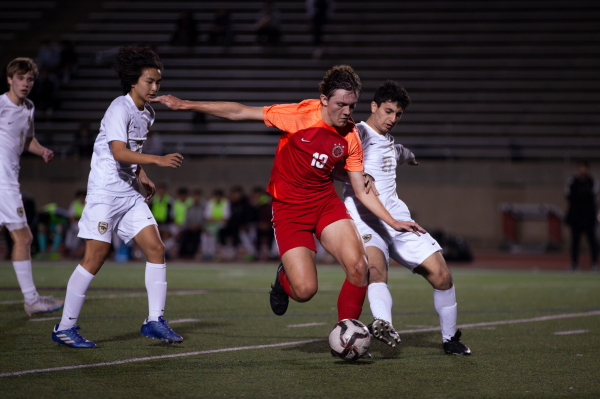
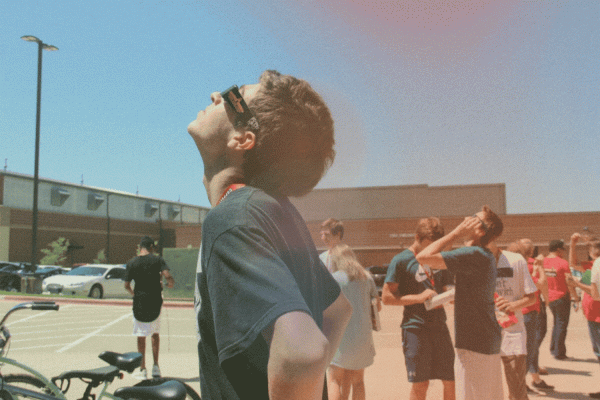
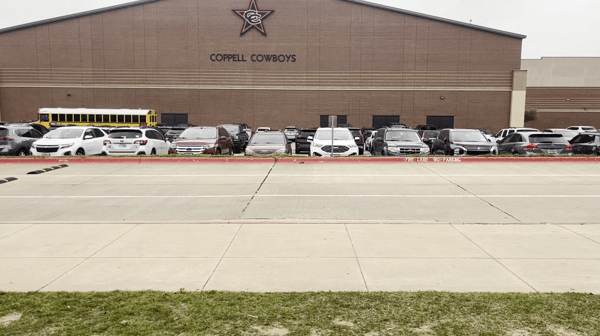
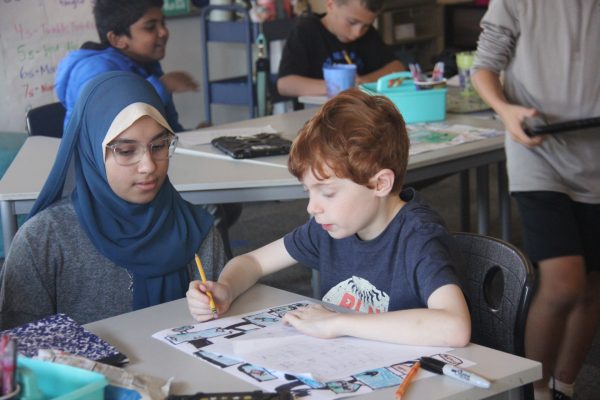
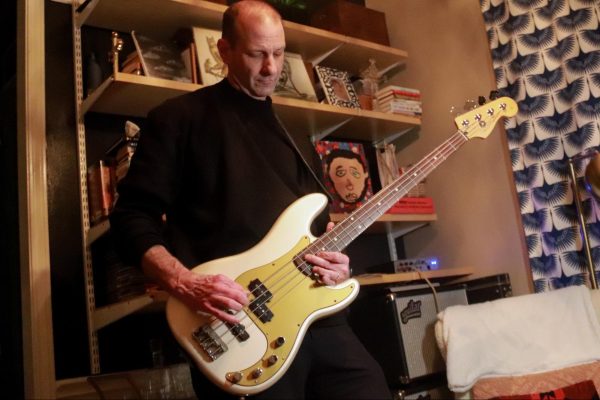
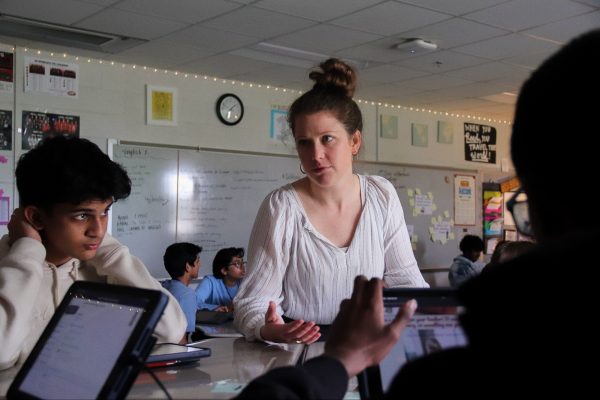
Meha Srivastav • Feb 11, 2017 at 7:17 pm
this is a really cool and well written story! 🙂